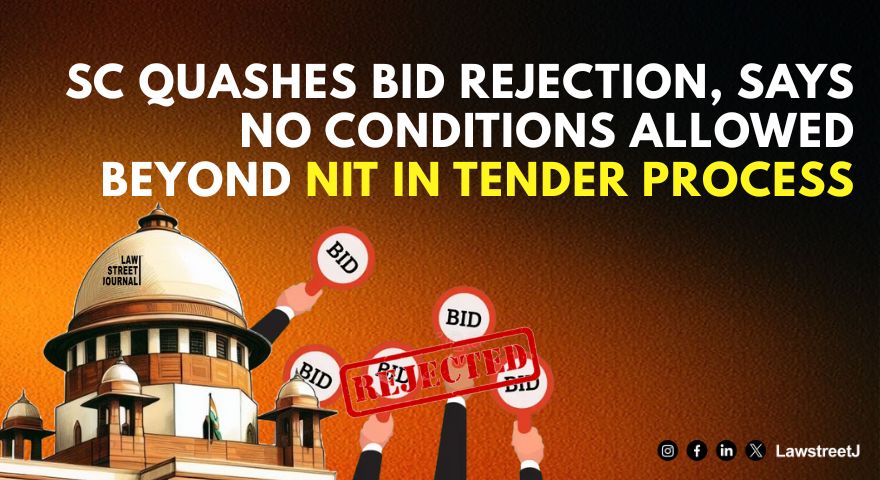New Delhi: The Supreme Court has ruled that a tendering authority cannot disqualify a bidder by imposing conditions not expressly mentioned in the Notice Inviting Tender (NIT), setting aside the rejection of a bidder whose solvency certificate was deemed invalid despite meeting all stipulated criteria. The Court held that such an act was arbitrary, contrary to the tender terms, and violative of the principles of fairness and transparency governing public procurement.
A Bench of Justice Surya Kant and Justice Joymalya Bagchi delivered the judgment on October 31, 2025, while allowing Civil Appeal No. 13017 of 2025 (arising out of SLP (C) No. 20557 of 2021) filed by Kimberley Club Pvt. Ltd. against Krishi Utpadan Mandi Parishad and others.
The appeal challenged the Allahabad High Court’s decision which had upheld the rejection of the appellant’s technical bid on the ground that its “haisiyat praman patra” (solvency certificate) was not issued by the District Magistrate.
The dispute arose from a tender floated by the Mandi Parishad for leasing a banquet hall and terrace lawn for ten years. Clause 18 of the NIT required submission of a “haisiyat praman patra” of a minimum value of ₹10 crores. The appellant submitted a valuation certificate issued by a professional valuer registered with the Income Tax Department, assessing its asset value at over ₹99 crores. However, its technical bid was rejected on the ground that the solvency certificate was not issued by the District Magistrate.
The Supreme Court observed that neither Clause 18 nor any other provision in the NIT specified that the solvency certificate must be issued by a District Magistrate, nor did the tender refer to the government notification cited by the respondent. The Bench held that the tendering authority had introduced a new condition extraneous to the NIT, thereby disqualifying the bidder on an untenable ground.
Quoting its earlier decision in Tata Cellular v. Union of India (1994) 6 SCC 651, the Court reiterated that judicial review in tender matters is limited to cases where the decision is “dehors the terms of the tender or patently arbitrary.” It found that the Mandi Parishad had failed to show that the government notification relied upon applied to all its tenders. “If the authority intended that the solvency certificate must be issued only by the District Magistrate, it ought to have specified so in the NIT,” the Court remarked.
The Bench further held that an order of rejection cannot later be justified on new grounds not stated in the original decision, citing Mohinder Singh Gill v. Chief Election Commissioner (1978) 1 SCC 405. Accordingly, it set aside the High Court’s order and directed the Mandi Parishad to reconsider the appellant’s technical bid.
The Court directed that if the appellant’s valuation certificate satisfies the solvency requirement under Clause 18 of the NIT, the tendering authority must accept the technical bid and thereafter decide, after negotiations, whether to award the remaining contract period to the appellant or allow the existing bidder to match the offer.
Case Title: Kimberley Club Pvt. Ltd. vs. Krishi Utpadan Mandi Parishad & Ors.













